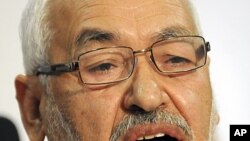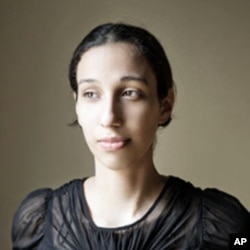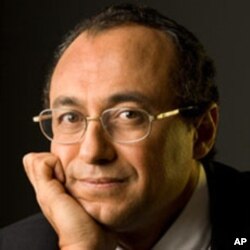It has been nearly two weeks since Tunisia’s Ennahda Party won 90 out of 217 seats on the new National Constituent Assembly, yet many Tunisians continue to express confusion over what impact this will have on the country.
Secular Tunisians worry that party leader Rachid Ghannouchi intends to impose sharia. Some conservative Muslims have renounced Ghannouchi as a traitor to Islam for his liberal stand on alcohol and the hijab. Meanwhile, many progressive Muslims are wondering whether Ghannouchi may be the reformist they have long hoped for. The Arab Spring has brought in much-needed political reforms; will it also usher in a “new” Islam?
Organized campaign
Secularists are still scratching their heads: How, exactly, did Islamists perform so well in the election. Anna Mahjar-Barducci is a Moroccan-Italian journalist, author and avowed secularist. She says she doesn’t regard the results as a “victory” by Ennahda, but a “failure” by secular political parties - 80 of them - who, she says “wasted valuable time” bickering about who should lead what.
“Tunisians have too many political parties,” she said. “When you have too many parties competing, you disperse the vote. It was a naïve way to approach a political election.”
She says Ennahda was the only party which had a strong base because it has been around under one name or another for 30 years.
“Ennahda,” said Mahjar-Barducci, “knew what they wanted, they knew whothey wanted to reach and they knew how to promote their party.”
Islamists as a breath of fresh air
Erik Churchill, an independent consultant and journalist who lives in Tunisia and has tracked the elections on his blog, A 21st Century Social Contract, believes that besides being well-organized, Ennahda offered a political message that resonated with most Tunisians.
“After 50 years of imposed secularism,” Churchill said, “many Tunisians responded positively to Ennahda's message that Islam can play a more active role in people's lives. Likewise, their campaign differed from their secular opponents’ campaigns. Ennahda emphasized grassroots approaches, which went over very well in rural areas.”
Ghannouchi also holds moral appeal, appearing as a breath of fresh air in the wake of the corruption and moral excesses of the former regime.
Robert Dreyfuss, author of The Devil’s Game: How the United States Helped Unleash Fundamentalist Islam, believes Tunisians are not as disconnected from Islam as reports would suggest. Just because Ghannouchi was exiled for so many years, Ennahda was there all along, operating covertly.
“Even though it’s a very French-influenced, somewhat cosmopolitan country,” he said, “at least in its upper middle classes, in all these countries where you have poverty, it’s the poor and under class and underprivileged who have been especially susceptible to the appeal of political Islam.”
Secularist Worries
After decades of corruption and repression, Tunisians most fear a return to political oppression of any kind - secular or religious. Some worry that the Ennahda win could eventually open the door to strict Islamic jurisprudence, restrictions on dress and socialization. Secular Tunisian women are nervous about the possible return of the hijab, polygamy or inequality in the workplace, all prevalent in more conservative Islamic societies.
Their concerns were heightened during recent protests by Tunisia’s Salafists, fundamentalists who surfaced during the Arab Spring. Salafists stormed a university in Sousse for denying admission to a veiled female student. They staged violent protests against the television station and its staff for airing a controversial film about the Islamic revolution in Iran - which they saw as a deliberate effort to confuse voters.
Reassurances
Ghanouchi and Ennahda’s secretary general, Hamadi Jbeli, have sought to soothe secularists’ nerves, insisting the party had no role in the Salafist protests. “There is no question of women's return to domestic caring roles,” Jbeli told reporters, “as the Movement's enemies try to spread.”
Jbeli also promised Ennahda would not do anything to upset Tunisia’s tourism or business sectors, both of which suffered during the Arab Spring.
Majhar-Barducci says she is inclined to believe these promises. “Ghannouchi is smart. Pragmatism is his strongest trait, so he wouldn’t do anything too radical. The population that voted for him can go against him at any time.”
Fundamentalist or Progressive?
So what does Ennahda really stand for? University of Michigan professor Juan R.I. Cole calls it a “fundamentalist” party because, he says, its platform starts from the premise that there are certain unalterable precepts.
“Ghannouchi says things like, ‘Islam forbids drinking alcohol-that can’t be changed,’” Cole said. “I think that’s the hallmark of fundamentalism, when somebody is not willing to examine their premises. I think Ghannouchi is not as liberal as he represents himself.”
He cites the fact that Ennahda has likened itself to the AKP Party in Turkey, which has successfully merged Islam and modernity. Cole does not buy it. “Unlike the Turkish model,” said Cole, “Ennahda is committed to gradually moving the country closer to what they conceive of as mainstream or orthodox Islamic law.”
Measuring radicalism
Dr. Tawfik Hamid is a Senior Fellow and Chair for the Study of Islamic Radicalism at the Potomac Institute for Policy Studies.
“When you put radicalism on a scale of zero to ten, ten is Taliban and Al Qaeda, and I put Muslim Brotherhood of Egypt at a level five, for example. But the Ennahda Party may be only one or two,” said Hamid.
Consider, he continues, Souad Abdel Rahim: One of 36 women among 90 Ennahda members of the new 217-member assembly charged with writing the country’s new constitution and appointing a new government, Abdel Rahim does not wear a veil or headscarf. Hamid says her mere presence on the Ennahda team speaks volumes for her party, because the hijab is a so fundamental to conservative Islam.
“Compare this to the Muslim Brotherhood in Egypt. They will never do this, not even for political reasons, not even to get more votes. If the Ennahda Party of Tunisia is showing any form of respect to women who do not wear the hijab, I salute them,” said Hamid.
Hamid believes Ghannouchi is a man of his word. “This is not a shallow man who is making statements for fabrications or for the media. I think this man strongly believes in what he is saying.”
Hamid points out that just as youth drove the Arab Spring, there is evidence that youth are also driving changes in religious thinking.
“I don’t think the young generation would be interested in following a belief that justifies violence against women or forces women to wear the hijab,” he said. “I see what is happening in Tunisia as part of a trend - a change and mutation in the understanding of Islam that has been happening over the last ten years, I can tell you it probably didn’t happen for a thousand years before it!”
Annahda’s win in Tunisia as a big step, says Hamid. “Not the ultimate step toward modernity in every aspect, but it symbolizes one thing, that Islam and the Muslim world is beginning to move slowly toward more reforms.”
If Ennahda manages to make good on its promises, Hamid believes that Tunisia, not Turkey, will serve as a successful a model of modern Islam for the rest of the Muslim world. It will be, he says, an “antidote” to radicalism.
















